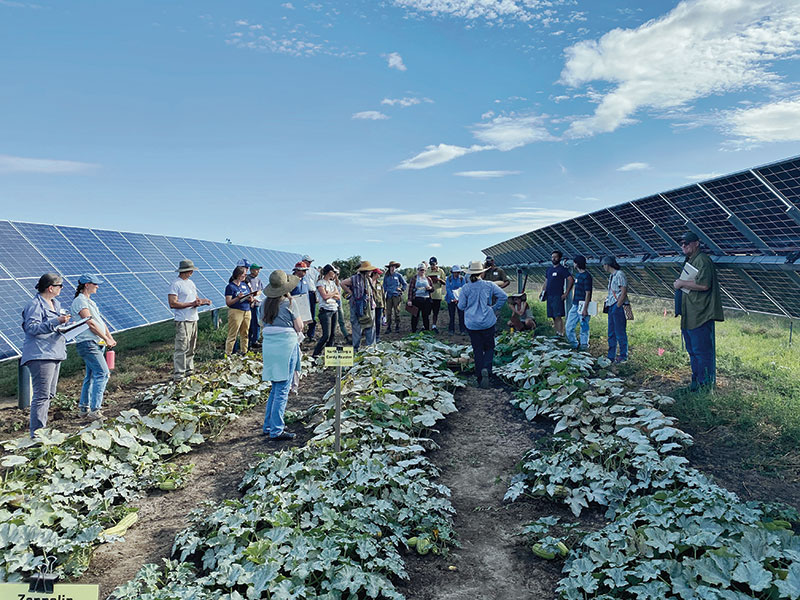AGRICULTURE
Demonstrating Climate-Adaptative Strategies
for Small-Scale Vegetable Farmers

Viewing crops in the agrivoltaics during the dry farmed field day.
By Heidi Noordijk
Small-scale vegetable farmers and conservationists gathered at NWREC for a series of field days and workshops. The primary focus of these events was to showcase drought resilient and climate-adaptative farming techniques, a crucial need identified by farmers in Western Oregon.
In designing the field demonstrations and educational events, Heidi Noordijk and Clint Taylor from OSU’s Small Farms Program, conducted farmer interviews to understand their current practices related to irrigation scheduling and tillage. Based on their insights, four field events were collaboratively developed with OSU Extension and soil conservationists from the NRCS and local Soil and Water Conservation Districts.
The seasons educational offerings included cover crop incorporation, irrigation scheduling, tillage operations, and dry farming. A total of 130 participants attended these events, which featured field tours, equipment demonstrations, hands-on activities, presentations by irrigation and soil specialists, tastings, and farmer discussions. A highlight was the melon tasting during the dry farmed field day, where participants sampled ten melon different dry farmed melon varieties. The melons only received water at transplanting and no additional irrigation throughout the season.
The workshops and field days provided a unique opportunity for participants to visually compare plots subjected to various irrigation and tillage treatments. When surveyed, 100% of respondents indicated they intend to reduce tillage on their farms, by using less aggressive equipment and fewer tillage passes. Reducing tillage can promote soil health and reduce erosion.
